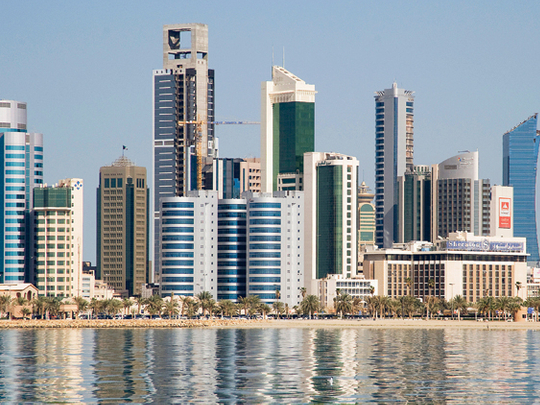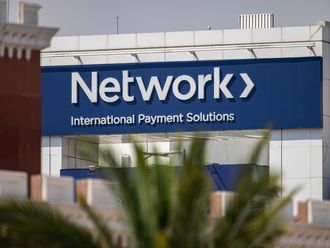
Kuwait City: Kuwaiti Central Bank Governor Shaikh Salem Abdul Aziz Al Sabah said loan growth to private companies and consumers should accelerate as the economy recovers and the government boosts spending on infrastructure.
The "local bank credit growth rate is expected to trend upwards taking into consideration the expansion of public expenditure," Shaikh Salem said in an email.
"Abundant liquidity" that can be directed toward projects will also drive up the credit growth rate.
Growth in bank loans to residents had slowed to an annual 6.1 per cent in Dec-ember 2009 from 17.6 per cent in the same month of the previous year, he said. "The fact that bank credit actually recorded positive growth despite the global economic and financial crisis is certainly a positive development," Shaikh Salem said.
Development plan
Parliament on February 2 approved a 30 billion dinar (Dh381.89 billion), four-year development plan that includes 4.5 billion dinars to be spent in the fiscal year starting April 1. The government expects companies to meet half the total cost of the plan, which includes investment projects to boost oil and gas production and to build a railway network, cities and a port on Boubyan Island.
The economy of Kuwait, the fifth-biggest Opec producer, is expected to expand 3.3 per cent this year, after contracting 1.5 per cent in 2009, according to the International Monetary Fund.
Oil prices have increased to about $80 a barrel after falling to a low of about $34 a barrel in December 2008.
Kuwaiti banks haven't yet taken full advantage of a government stability bill enacted in April 2009 to bolster financial institutions hurt by the global credit crisis, Shaikh Salem said.
This means banks "are actually able to bear the costs of the required provisions and decline in their financial and real estate investments," he said.
Crisis
Kuwait was the third state in the region to prop up its banking system as the credit crisis threatened the region's currency, stock and real-estate markets. Kuwait guaranteed all deposits at local banks in 2008 after Gulf Bank KSC posted a loss of 375 million dinars from derivatives trading and Global Investment House KSCC, the country's biggest investment bank, defaulted on $2.8 billion of debt.
"New finance, extended by banks and 50 per cent guaranteed by the state totalled 86.4 million dinars at the end of December 2009," Shaikh Salem said.
"Credit facilities continued to grow at positive rates and there is no credit crunch in the market."
Under the package, the government will guarantee half of as much as 4 billion dinars in new loans provided by local banks in 2009 and 2010.
Project to be revived
A previously stalled $15 billion project to build a 615,000 barrels per day (bpd) refinery in Kuwait is likely to be revived by a key technical committee next week, a newspaper reported yesterday.
The Al Rai daily said, in an unsourced report, a decision on the new refinery was expected to be made when the technical committee of Kuwait's highest oil policy body meets on Sunday.
Officials have said the Supreme Petroleum Council has again reviewed pushing the Al Zour refinery project aimed at providing fuel supplies, most of which are now imported, to domestic power plants.
Opec member Kuwait had in March last year scrapped plans to build the country's fourth refinery on opposition from several lawmakers who questioned the tender process.
Tension between parliament and the cabinet has delayed a number of other energy projects, but sources told the newspaper the refinery project relaunch was "not in doubt because it is part of development plan" approved by parliament last month.
The refinery would eventually replace the older 200,000 bpd refinery at Shuiba and produce low-sulphur fuel oil.
Kuwait is the world's fifth largest oil exporter. It pumped 2.28 million barrels per day of crude in January, according to a Reuters survey.










